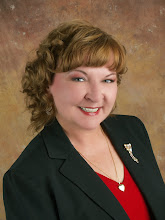It’s been interesting to follow the several class action cases in Michigan that have claimed that franchise fees are actually unauthorized taxes under Michigan state law. Courts have ruled (correctly so) that franchise fees are not taxes. Some of those rulings are on appeal.
In a twist, the City of Warren decided to settle the lawsuit brought by three Warren residents. The settlement agreed that all franchise fees had to be used for cable TV or “communications services.” The communications services allows Warren to pay for such items as their website, newsletters and other printed material mailed to residents. The settlement prevents the city from using franchise fees for other services such as the library.
Rather than understanding that shifting resources from the general fund to a “communications fund” means that those newsletters, calendars, the website, etc. will now be paid for using franchise fees, the Council President suggests that the franchise fee be lowered to 2 or 3 percent. The reduction in revenue for the City will run 40 to 60 percent or from $1.7 million down to a low of $670,000. The lowered amount will gut the budget of the City’s own government channels by over 50 percent.
Warren currently operates four government channels that provide 200 hours of locally produced non-repeat programming each week. The channels also provide over 100 hours of election coverage each election year. A member of the communications commission stated that the City has an “excess” of franchise fee revenues, but given that only $300 hundred thousand a year is above and beyond what is currently being used by the government channels it would hardly seem that Warren has a substantial excess of franchise fees. Reducing the franchise fees from 5 to 3 percent would save Warren cable subscribers about a dollar a month (that’s for expanded and premium subscribers, it would be much less for basic subs).
There are good arguments on both sides regarding the use of franchise fees for cable related services only vs. for general fund. Cities have certainly been strained in the last few years to keep up with ever increasing demand for services. But to use this settlement as a reason to now deeply reduce funding for government access (especially access with such a stellar production track record) seems…well…unseemly.
And it can hardly be what Cynthia Pfaelert and Dowell and Dora Taylor (plaintiffs) meant by bringing the suit in the first place.




